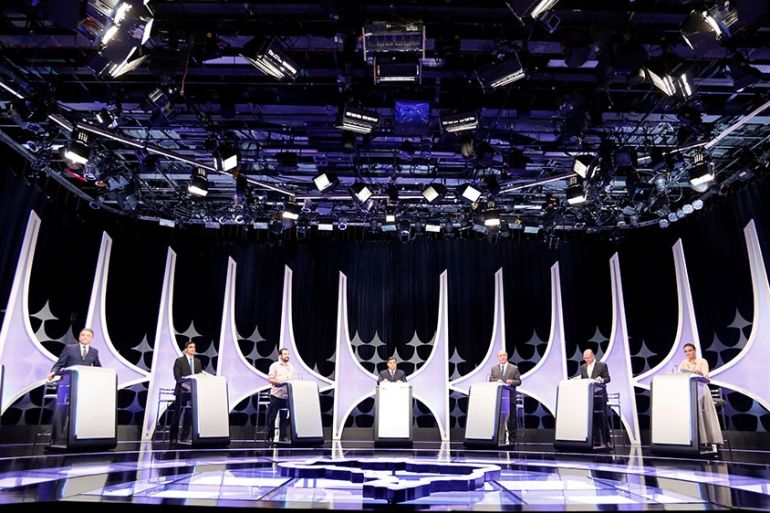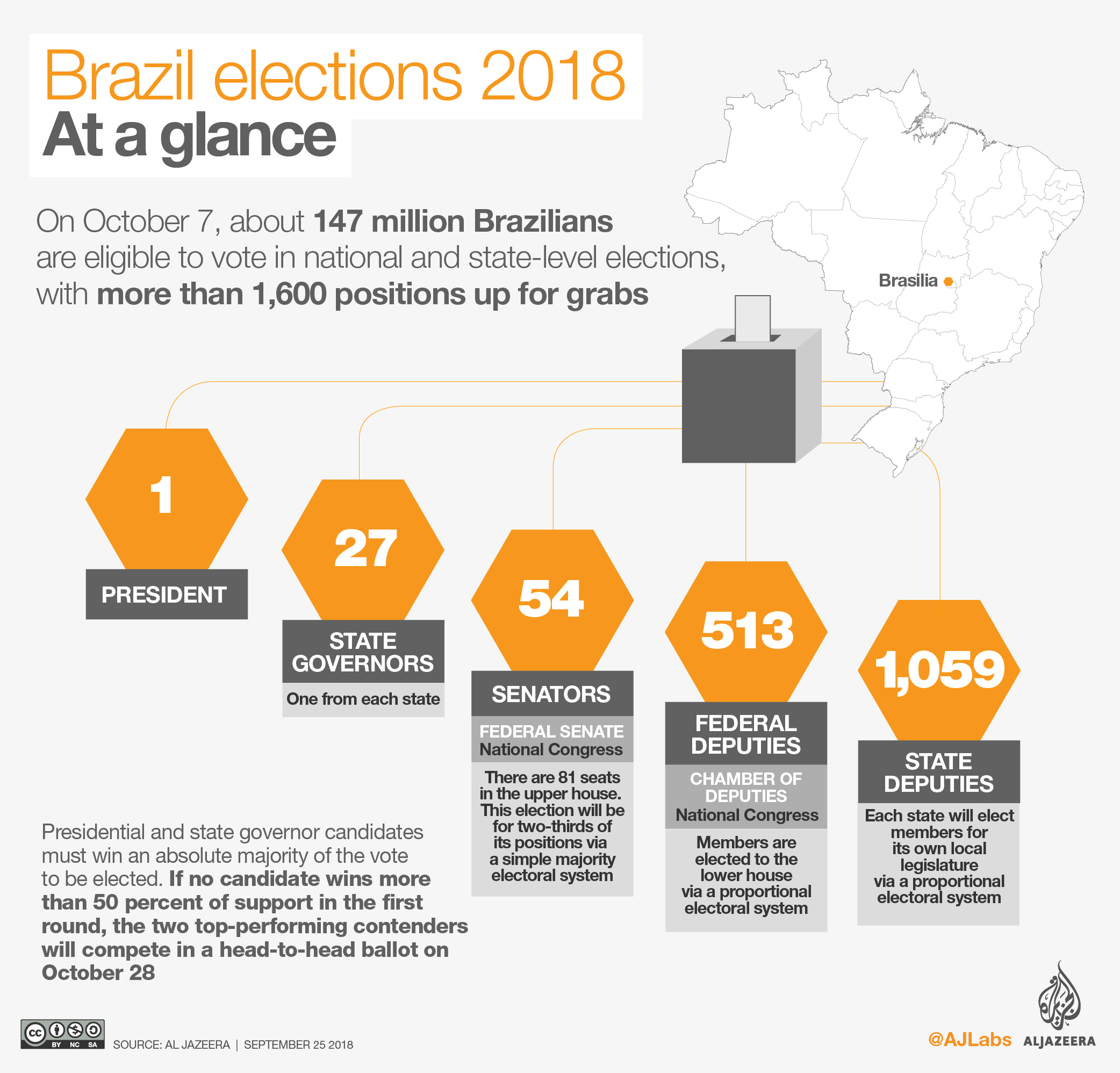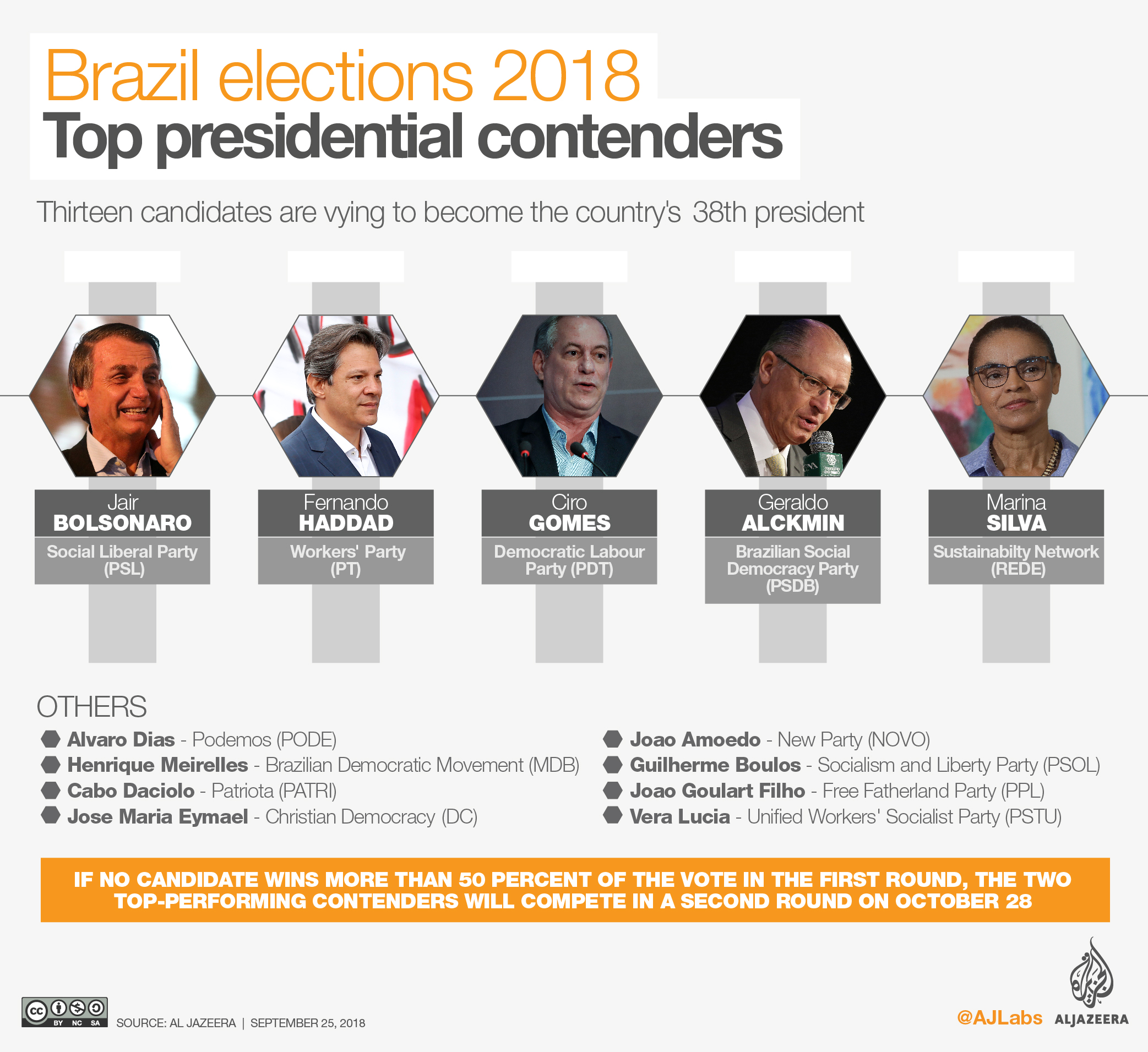Brazil elections: A tight and turbulent race
Presidential election campaigning has been packed with drama, with Bolsonaro and Haddad pulling ahead in the polls.

Sao Paulo – In less than two weeks, Brazilian voters will head to the polls choose a new president.
It’s been a turbulent contest so far, packed with drama, including an assassination attempt on Jair Bolsonaro, the far-right frontrunner who continues to lead opinion polls while recovering in hospital.
Keep reading
list of 4 itemsFull jury panel seated on third day of Trump’s New York hush-money trial
Jacob Zuma’s nine lives: How South Africa’s ex-president keeps coming back
A flash flood and a quiet sale highlight India’s Sikkim’s hydro problems
Former Sao Paulo mayor Fernando Haddad of the leftist Workers’ Party is second, having taken over from ex-President Luiz Inacio “Lula” da Silva, who is serving a 12-year sentence on corruption charges and was barred by the electoral court from running earlier this month.
Given that support for Bolsonaro has steadily grown in opinion polls all year and that Haddad has risen rapidly since he took over Lula’s candidacy, barring an unforeseen circumstance, it’s seen as almost certain that these two will make the second round runoff, scheduled for October 28.
According to opinion polls released Wednesday by Ibope, Bolsonaro leads with 27 percent of voting intention, while Haddad has 21 percent and candidates Ciro Gomes and centre-right Geraldo Alckmin trail with 12 percent and 8 percent respectively.
If neither candidate gets more than 50 percent during the first round on October 7, the vote will proceed to a second-round runoff.

Ibope showed that Haddad would narrowly beat Bolsonaro in the runoff but, for most analysts, the race is still far too close to call.
“It will come down to a dispute of rejection: who can reduce their rejection the most or increase that of their opponent,” said Ricardo Ribeiro, a political analyst with Sao Paulo-based MGM Consultancy.
‘Festival of negative propaganda’
Bolsonaro has the highest rejection levels of any candidate according to polls, but Ribeiro said that Haddad’s would likely rise, given Brazil’s current polarised political atmosphere which is replete with deep anti-Workers’ Party and leftist sentiment.
“It will be a festival of negative propaganda from both sides,” Ribeiro said of the second round, where both candidates are given equal free television advertisement time.
TV time is designated according to party presence in the lower house and, until now, Bolsonaro gets mere seconds of free TV time each day, due to his small coalition in Congress, while the Haddad gets several minutes worth because the Workers’ Party has 61 congressmen.
While equal TV time could help level the playing field for Bolsonaro, the Workers’ Party has an established history of producing slick, hard-hitting campaign ads.

Since he was stabbed, Bolsonaro has been unable to campaign or take part in televised debates, the most recent of which took place Wednesday night.
During the debate, Haddad focused on the golden years of the Workers’ Party, during which tens of millions were lifted from poverty. Under his watch as education minister, places for lower-income students were greatly expanded.
Opponents attacked the legacy, blaming the party’s corruption scandals and macroeconomic mismanagement for Brazil’s deep recession, with its rising poverty and high unemployment.
On Saturday, thousands are expected to march against Bolsonaro under the banner #EleNao! or “not him”.
The protests are organised by women in response to his history of fiercely misogynistic remarks. Rival demonstrations in support of Bolsonaro are to be held on Sunday in Sao Paulo.
For Ribeiro, the political analyst, when it comes to the runoff, most Brazilian elections are won on a candidate’s ability to moderate their discourse and appeal to the centre.
“This is something that Bolsonaro’s team doesn’t manage to do so well,” he said.